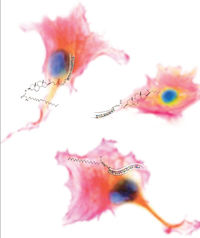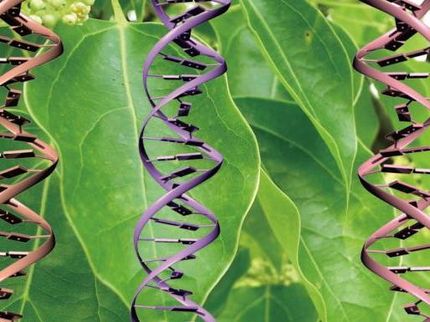Aluminum tolerant sorghum
Cloned gene being used to develop aluminum tolerant crops, Kochian says at AAAS
Advertisement
Cornell researcher Leon Kochian, in collaboration with Brazilian scientists, has cloned a unique sorghum gene that is being used to develop sorghum lines that can withstand toxic levels of aluminum in the soil, a consequence of acidic soils.
Acidic soils limit crop production in half the world's potentially arable land, mostly in developing countries in Africa, Asia and South America, said Kochian. He hopes that the research will one day help farmers in developing countries significantly boost their crop production and better help feed the hungry.
Kochian, Cornell adjunct professor of plant biology and director of the U.S. Department of Agriculture--Agricultural Research Service Robert W. Holley Center for Agriculture and Health at Cornell, described the work on identifying and characterizing an aluminum tolerance gene in certain lines of sorghum and using molecular breeding techniques to introduce this gene into lines used for sorghum breeding in Africa, at the annual American Association for the Advancement of Science meeting in San Diego.
In his talk, "Fighting Fire With Fire: Plants Tolerate Acid Soils by Releasing Organic Acids," presented at the Getting to the Roots of Agricultural Productivity Symposium, Kochian said that he and Jurandir Magalhaes, Ph.D. '02, of the Embrapa Maize and Sorghum lab in Brazil, started this project for Magalhaes' Ph.D. research at Cornell in Kochian's lab. He added that they have also found evidence for a number of variants of this tolerance gene that underlies the wide variation in sorghum aluminum tolerance.
Aluminum tolerance is found in a small number of sorghum varieties, he said, where this gene encodes a novel membrane transporter protein in the root tip that mediates the release citric acid into the soil when the roots are exposed to aluminum. The citric acid binds aluminum ions and prevents the toxic metal from entering the roots.
Since Kochian and colleagues have identified this gene, they have found evidence for other genes that also play a role in aluminum tolerance, he said. In work led by Magalhaes, the researchers introduced the region of the sorghum genome that harbors their aluminum tolerance gene from a number of tolerant sorghum lines into a common breeding line that is aluminum sensitive. When they did this, a significant degree of the tolerance in the donor line was lost, which strongly suggests that other genes are also needed for full expression and function of their aluminum tolerance gene.
Kochian and Magalhaes are also collaborating with sorghum breeders in Africa to generate genetic markers that will allow them to identify the best versions of their aluminum tolerance gene in African sorghum lines. These same markers will then be used to improve sorghum aluminum tolerance in Africa via molecular breeding techniques.
Kochian's lab has also used this information from sorghum to identify the first aluminum tolerance gene in maize, and in collaboration with Embrapa, similar molecular genetic approaches are being used to improve maize tolerance on acidic soils.


























































